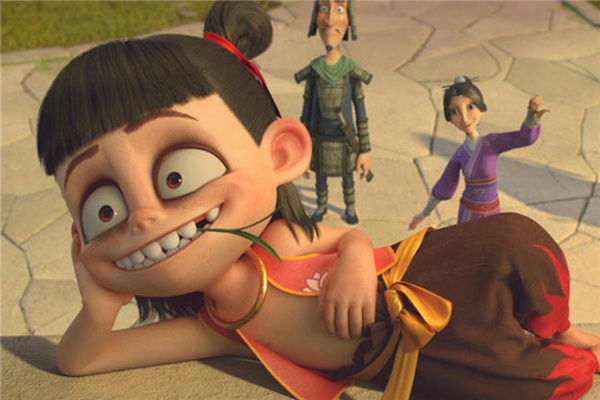Chinese film industry looks for new horizons in North America
Xinhua | Updated: 2019-12-31 14:57

Big challenge to be more popular
These Western-style film skill sets have translated into astonishing success for filmmakers in China's domestic market. But, to date, only around 7 percent of Chinese box office revenues come from overseas sales, in contrast to Hollywood films, whose foreign revenues have risen from 30 percent of sales 20 years ago to nearly 70 percent of box office revenues today.
The box office revenues of The Wandering Earth in North America are 0.8 percent of its global cume while the North American box office revenues of Ne Zha account for only 0.5 percent of its global cume.
It's worth noting that the majority of Chinese film box office revenues in North America are still derived from overseas Chinese moviegoers. Only a few moviegoers seeing Chinese films in North American theaters are non-Chinese speaking.
Chinese films have long faced an uphill, cross-cultural challenge to crack the code regarding what attracts international interest. Frequent complaints about Chinese fare range from "too different to identify with," or "too long, rambling and confusing," or simply "too Chinese."
The difference in stories and storytelling styles is significant, because Chinese films usually have a different format and pace than Hollywood's more popular three-act linear format, and stories unique to China are unfamiliar in the West.
Hollywood producer Jeff Most told Xinhua, "China has thousands of years of legends, folk tales and myths that the West knows nothing about and doesn't yet identify with the same way."
"These are rich cultural traditions China wants to share but they need to be introduced to Western audiences in a way that highlights the universal aspects of the story that everyone can all relate to, rather than the more nuanced cultural references that are impenetrable or confusing to Westerners," he said.
Chris McGurk, chairman and CEO of Cinedigm, which is a leading streaming and DVD distributor of Chinese content into the US and US content into China, told Xinhua in an interview, "The biggest issue is storytelling. Traditional Chinese storytelling is very difficult for non-conditioned (foreign) viewers to feel comfortable with, especially if it's subtitled."
McGurk pointed out that a film with nuanced subtitling can mean greater success in the North American market. American audiences are notoriously opposed to reading subtitles and the dubbing on Chinese films has been poorly done for decades.
Some US audiences display a tendency to prefer watching characters on screen that look and behave like them, making it harder for movies with an all-Chinese cast to attract larger Western audiences, though Chinese or Chinese-American stars like Jackie Chan, Bruce Lee and Awkwafina have had no trouble being accepted by US audiences.
"A big challenge with Chinese films in global markets is in telling relatable stories," said Richard Yu, Cinema Escapist's Asia editor.
"For Western audiences, it's important for the main characters in stories to have serious and relatable struggles for them to experience a human connection," he added.
























